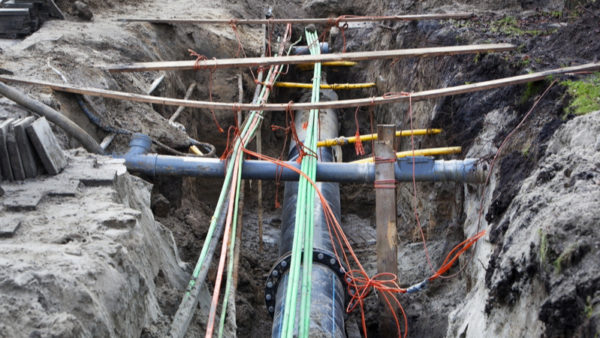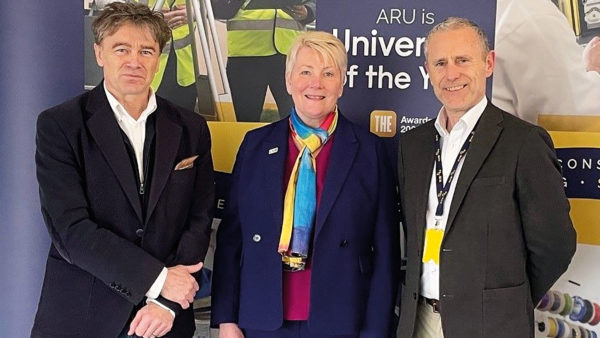
As new government guidance on modern slavery is set to come into effect next month, Alex Minett of CHAS discusses the steps construction firms can take to identify and manage potential risks.
From 1 April 2023 government departments must follow updated guidance on identifying and managing the risk of modern slavery in their supply chains.
The move comes as figures show modern slavery is on the increase. The International Labour Organization (ILO) reports the Covid-19 pandemic has fuelled a surge in extreme poverty which is considered a major factor in driving forced labour.
Recent UK government statistics also reflect this increase. November 2022 saw the highest number of potential modern slavery victims referred to the Home Office for investigation since its National Referral Mechanism (NRM) began in 2009. This represents a 38% increase on the same quarter the previous year.
More worrying is these figures are likely just the tip of the iceberg. In 2021, 12,727 potential modern slavery victim referrals were made to the NRM by ‘first responders’ – the police, councils, border force, and selected charities authorised to refer. Yet, analysis from the Centre for Social Justice estimates there could be at least 100,000 victims in the UK, with the actual number expected to be even greater.
While you could argue that increased victim referrals correlate with better awareness and identification of modern slavery, there’s no disputing the sad reality that the figures still represent large-scale exploitation of vulnerable people, and everyone has their part to play in seeing it eradicated.
The government’s latest procurement policy note (PPN) is, therefore, not just best practice for government supply chains but helpful guidance for the construction industry as it looks to take a proactive approach to prevent modern slavery.
What is the law on modern slavery?
The Modern Slavery Act 2015 outlines businesses’ legal responsibility to source goods and services legitimately and ethically. In the UK, any company that meets the four criteria below must publish a slavery and human trafficking statement each financial year.
It should set out what steps they have taken to prevent modern slavery in their business and supply chains. If no steps have been taken, the statement must also confirm this. The criteria are:
- If it is a ‘body corporate’ or a partnership, wherever incorporated or formed
- If it carries on a business, or part of a business, in the UK
- If it supplies goods or services
- If it has an annual turnover of £36 million or more
However, eradicating modern slavery is not just a problem for big businesses. Many contracts and tender documents now include anti-slavery clauses and request compliance with the Act as standard. This means smaller businesses, irrespective of turnover, should be prepared to demonstrate their actions to prevent the risk of modern slavery in their supply chains.
Taking action
Although PPN 02/23 – Tackling Modern Slavery in Government Supply Chains is weighted towards government procurement and supplier management, the guidance can be helpful for businesses operating in the private sector too.
It sets out four areas of activity and associated actions: identifying and managing risks in new procurements, assessing existing contracts, taking action when victims of modern slavery are identified, and training.
Look for contractor verification
With strengthening contract management, a key focus of the updated PPN, organisations may want to work with a supply chain risk management expert to verify their contractor base and bolster supply chain due diligence.
For example, many CHAS contractors are now qualified to the CHAS Elite standard which incorporates the Common Assessment Standard, a qualification that assesses businesses across 13 elements, including modern slavery.
Modern slavery remains high on the political agenda, but achieving systemic change requires a unified approach. Alongside robust risk management processes, the latest PPN offers best practice guidance to help construction companies drive effective human rights due diligence in their supply chains.
Government guidance on modern slavery
Identifying and managing risks in new procurement
Previously, government departments were advised to identify and assess the risk of modern slavery in a new supplier according to six core characteristics. The characteristics include industry type, type of workforce, supplier location, the context in which the supplier operates, commodity type, and business/supply chain model. These criteria remain the same for the revised PPN but include an update to the sectors of concern to include cotton, PPE and polysilicon.
Where an organisation is deemed to be at high risk of modern slavery, there is a new requirement for supply chain information to be supplied at the selection stage of new procurements.
According to the guide, new procurements should be designed in line with the associated risk level, including (if appropriate) application of the Social Value Model.
Key actions in this section also include reviewing and amending operating procedures and contract management processes and any related documentation in line with the updated guide.
Assessing existing contracts
Actions in this area involve undertaking risk assessments on existing contracts and carrying out supply chain mapping exercises. The guidance also recommends strengthening contract management to manage risks and working with suppliers towards progressive improvement. Collaborating with suppliers to encourage transparency and ensure suppliers are not afraid to highlight issues as they arise is also key.
The importance of proportionality is emphasised to avoid unnecessary burdens on SMEs and VCSEs.
Taking action when victims of modern slavery are identified
Organisations must address modern slavery and human rights abuses immediately and proportionately. Transparency is key here, with a recommendation to ensure suppliers work proactively to identify and resolve any issues and change working practices.
In some instances, abuses may be a consequence of how an industry is organised. In such cases, a longer-term approach to address the root cause might be appropriate.
Contracts should only be terminated as a last resort.
Training
Ongoing training is essential to ensure staff involved in contract procurement and management can identify the risks and ensure that suspected instances of modern slavery are handled correctly.
All relevant staff should be made aware of the Modern Slavery Helpline on: 08000 121 700 or online.
This quick reference guidance provides further information on actions recommended in the PPN to mitigate the risk in supply chains.
Alex Minett is head of products and markets at CHAS










